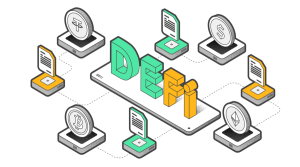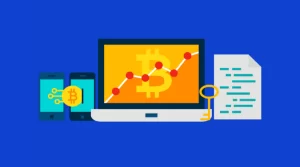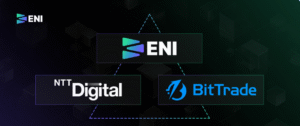
The Importance of Regularly Updating DeFi Protocol Software
In the world of decentralized finance (DeFi), protocol software plays a crucial role in enabling secure and efficient financial transactions. However, just like any other software, DeFi protocols are not immune to vulnerabilities and bugs. To maintain the integrity and security of these platforms, it is essential to regularly update the DeFi protocol software. This article explores the reasons why updating DeFi protocol software is of utmost importance and the benefits it brings to the ecosystem.
What is DeFi Protocol Software?
DeFi protocol software refers to the code and underlying infrastructure that powers decentralized finance platforms. These protocols are built on blockchain technology, primarily on platforms like Ethereum, and enable individuals to engage in various financial activities without the need for intermediaries such as banks or traditional financial institutions.
At its core, DeFi protocol software consists of smart contracts, which are self-executing agreements that facilitate the transfer of digital assets and automate financial transactions. These smart contracts define the rules, logic, and conditions under which these transactions occur, ensuring transparency, security, and immutability.
DeFi protocol software provides the foundation for a wide range of decentralized financial services, including lending and borrowing platforms, decentralized exchanges (DEXs), yield farming protocols, and stablecoin platforms. It allows users to interact directly with the protocols, lending their assets, earning interest, trading tokens, or providing liquidity to decentralized liquidity pools.
By leveraging decentralized technology and smart contracts, DeFi protocol software aims to create a more inclusive and accessible financial system, where individuals have greater control over their assets and can participate in financial activities in a permissionless and trustless manner.
The Rapid Evolution of DeFi
The rapid evolution of decentralized finance (DeFi) has been a defining characteristic of this emerging sector. Since its inception, DeFi has experienced exponential growth, innovation, and transformative advancements within a relatively short period.
DeFi has witnessed the development of new protocols, applications, and financial instruments that have revolutionized traditional financial services. This rapid evolution has been fueled by a combination of factors, including the increasing adoption of blockchain technology, the rise of smart contracts, and the growing demand for decentralized alternatives to traditional finance.
The expansion of DeFi has resulted in a multitude of opportunities for users to engage in various financial activities. These activities include lending and borrowing digital assets, trading cryptocurrencies on decentralized exchanges (DEXs), participating in yield farming and liquidity mining, and accessing decentralized lending and stablecoin platforms.
Moreover, the rapid evolution of DeFi has sparked innovation in areas such as decentralized derivatives, decentralized insurance, prediction markets, and decentralized governance systems. These advancements have pushed the boundaries of what is possible within the decentralized finance space, attracting both developers and users to explore new possibilities.
As DeFi continues to evolve, it has the potential to disrupt traditional financial systems by providing greater financial inclusivity, transparency, and accessibility to individuals worldwide. The fast-paced nature of this evolution calls for continuous research, development, and collaboration among stakeholders to ensure the sustainability and security of the DeFi ecosystem.
The Significance of Regular Updates
Enhanced Security and Bug Fixes
Regular updates of DeFi protocol software are essential to address security vulnerabilities and fix bugs. The decentralized nature of DeFi makes it an attractive target for hackers, and any vulnerability in the code can be exploited to compromise user funds. By keeping the software up to date, developers can identify and patch potential security loopholes, minimizing the risk of attacks.
Improved Performance and Efficiency
Software updates often come with performance improvements and optimizations. DeFi protocols handle a significant volume of transactions, and as the user base grows, the demand for scalability and speed increases. Updating the software allows developers to introduce optimizations that enhance the overall performance and efficiency of the protocol, providing users with a better experience.
Compatibility with New Features and Standards
The DeFi space is continuously evolving, with new features, standards, and technological advancements being introduced regularly. By updating the protocol software, developers ensure compatibility with these new developments. This enables users to take advantage of the latest features and innovations, fostering growth and driving adoption within the DeFi ecosystem.
Compliance with Regulatory Requirements
As the DeFi industry gains mainstream attention, regulatory scrutiny is also increasing. Updating the protocol software helps ensure compliance with evolving regulatory requirements. By implementing necessary changes, such as know-your-customer (KYC) procedures or anti-money laundering (AML) measures, DeFi protocols can navigate the regulatory landscape and gain broader acceptance.
The Challenges of Updating DeFi Protocol Software
Updating DeFi protocol software comes with its own set of challenges. The decentralized nature of these platforms means that updates require coordination and agreement from various stakeholders, including developers, users, and token holders. Additionally, updating smart contracts may require careful consideration to avoid disrupting existing services and user funds.
- Decentralized Governance: Decision-making in DeFi protocols often involves decentralized governance models where multiple stakeholders, including developers, users, and token holders, participate in the decision-making process. Coordinating and obtaining consensus among these stakeholders can be complex and time-consuming.
- Smart Contract Interactions: DeFi protocols consist of interconnected smart contracts that interact with each other and external applications. Updating one smart contract may require careful consideration to ensure compatibility and avoid disrupting existing services and user funds.
- Security Risks: The decentralized nature of DeFi makes it an attractive target for hackers. Updating the protocol software introduces the risk of introducing new vulnerabilities or overlooking potential security loopholes. Thorough testing and security audits are crucial to mitigate these risks.
- Scalability and Performance: DeFi protocols handle a high volume of transactions, and as the user base grows, scalability and performance become critical. Updating the software while maintaining or improving scalability and performance requires careful optimization and testing.
- User Experience and Adoption: Any significant change or disruption to the user experience can impact adoption and user retention. Developers must strike a balance between introducing necessary updates and ensuring a seamless transition for users.
- Regulatory Compliance: The evolving regulatory landscape surrounding DeFi adds complexity to updating protocol software. Developers need to stay informed about regulatory requirements and implement any necessary changes to maintain compliance.
- Interoperability Challenges: Interoperability between different DeFi protocols and blockchain networks can be challenging. Updating the software while maintaining interoperability with other protocols and networks requires careful coordination and testing.
- Education and Documentation: Keeping the community informed and educated about software updates is crucial. Clear and comprehensive documentation, tutorials, and community support are necessary to facilitate a smooth transition and minimize confusion.
Overcoming these challenges requires close collaboration, continuous monitoring, rigorous testing, and proactive community involvement throughout the update process.

Best Practices for Updating DeFi Protocol Software
To overcome the challenges associated with updating DeFi protocol software, the following best practices can be followed:
Collaboration and Community Involvement
Engaging the community in the update process is crucial. Developers can seek feedback, suggestions, and support from the user base and token holders to ensure a smooth transition. Open discussions and transparency build trust and encourage active participation. Collaboration and community involvement are essential in the process of updating DeFi protocol software. Engaging the community allows developers to gather feedback, suggestions, and support, fostering trust and encouraging active participation. Open discussions and transparency build a strong community that contributes to the success of the protocol.
Continuous Monitoring and Testing
Thorough testing of software updates is essential to identify potential issues before deploying them to the live environment. Continuous monitoring helps detect any anomalies or vulnerabilities promptly. Additionally, conducting bug bounty programs or security audits can provide valuable insights into the robustness of the updated software.
The Role of Audits and Security Reviews
The role of audits and security reviews is crucial in evaluating the security and integrity of DeFi protocols. Engaging reputable audit firms helps identify vulnerabilities and ensures that the updated software meets industry best practices, providing users with confidence in the safety of their funds and transactions.
Conclusion
Regularly updating DeFi protocol software is essential for maintaining the security, stability, and functionality of decentralized finance platforms. By addressing security vulnerabilities, improving performance, and complying with regulatory requirements, developers can create a safer and more efficient environment for users. Embracing best practices and involving the community in the update process will foster trust, innovation, and the long-term success of the DeFi ecosystem.
FAQs
1. How often should DeFi protocol software be updated? Regular updates are recommended, but the frequency may vary depending on the complexity of the protocol and the rate of innovation in the DeFi space.
2. Can updating the software disrupt existing services? Updating the software can potentially disrupt existing services, which is why thorough testing and coordination with stakeholders are crucial to minimize any disruption.
3. How can users stay informed about software updates? Users can follow official announcements, join community forums, or subscribe to newsletters and social media channels to stay updated on the latest developments and software updates.
4. Are all DeFi protocol updates mandatory? Not all updates are mandatory, but it is generally advisable to keep the software up to date to ensure security, compatibility, and access to the latest features.
5. What happens if a vulnerability is discovered in the protocol software? If a vulnerability is discovered, developers typically release an update as soon as possible to address the issue and protect user funds. Users are encouraged to update their software promptly to stay secure.
I have worked in the cryptocurrency industry for over 5 years and have written numerous articles on the subject. I am well-versed in all aspects of cryptocurrencies and blockchain technology, and am an expert in the field.









